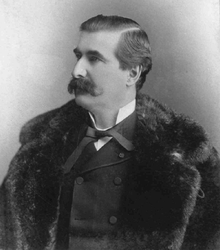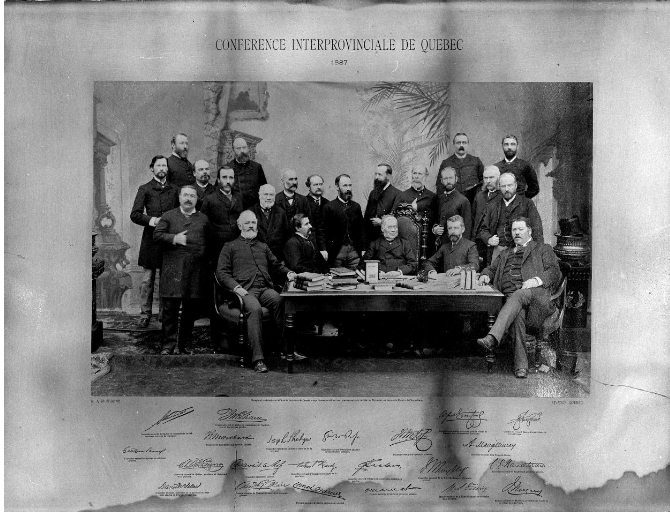In the late 19th century, relationships between the federal government and the provincial governments were strained, and the provinces made several demands to Ottawa for greater independence.
Questions of identity were a major point of contention between the federal government and Quebec, under Honoré Mercier. The Premier of Quebec showed great solidarity with the Francophone communities living outside the province, because they were experiencing various difficulties, such as the hanging of Louis Riel and the loss of language rights in Manitoba, New Brunswick and Ontario. In light of this, the government of Quebec denounced this new attack on French Canadians by the federal government. Following these events, Quebec adopted a protective attitude towards all French Canadians, regardless of where they lived in Canada.

Like most people in Quebec, Honoré Mercier shared the opinion that Quebec was the defender of French Canadians’ rights.
As Premier of Quebec, Honoré Mercier also orchestrated a nationalist movement in which he strongly defended provincial autonomy. This meant that the federal government should grant more political and tax powers to the provinces.
Provincial autonomy, which was ardently defended by Honoré Mercier, appealed to the other provinces. Seeking to gain more power from the federal government, representatives of the provinces met at the Inter-Provincial Conference to improve communication and their cohesion within the federation. The provinces also wanted to receive more money from the federal government.

In 1887, the provincial premiers met in Quebec to discuss the issue of provincial autonomy.
The Inter-Provincial Conference, which was organized by Honoré Mercier in 1887, mainly addressed the fact that the federal government tended to interfere in provincial areas of jurisdiction. Though they were not on good terms, Honoré Mercier invited the Canadian Prime Minister, John A. Macdonald, who refused the invitation, as did the premiers of British Columbia and Prince Edward Island.